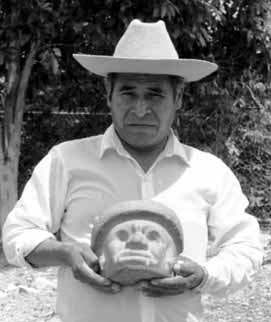|
 "I think modern neuroscience makes it clear that the self cannot be what it appears to be. We may feel as though we have a special little "me" inside, who has
sensations and consciousness, who lives my life, and makes my decisions. Yet, this does not fit with what we know about the brain. Look inside a brain and what do you see? There is no central place into which all
the impressions come and from where the orders go out. Rather, there is a massive processing system dealing with numerous things at once, only very few of which ever reach consciousness." (Susan Blackmore, New Scientist, 13 March 1999.
www.newscientist.com) "I think modern neuroscience makes it clear that the self cannot be what it appears to be. We may feel as though we have a special little "me" inside, who has
sensations and consciousness, who lives my life, and makes my decisions. Yet, this does not fit with what we know about the brain. Look inside a brain and what do you see? There is no central place into which all
the impressions come and from where the orders go out. Rather, there is a massive processing system dealing with numerous things at once, only very few of which ever reach consciousness." (Susan Blackmore, New Scientist, 13 March 1999.
www.newscientist.com)- "Subjective conscious mind is an analog of what is called the real world. It is built up with a vocabulary or lexical field whose
terms are all metaphors or analogs of behavior in the physical world. Its reality is of the same order as mathematics. It allows us to shortcut behavioral processes and
arrive at more adequate decisions. Like mathematics, it is an operator rather than a thing or repository. And it is ultimately bound up with volition and decision." (Julian Jaynes, The Origin of Consciousness in the Breakdown of the Bicameral
Mind, p. 55)
- "…consciousness is an operation rather than a thing, a repository, or a function. It
operates by way of analogy, by way of constructing an analog space with an analog 'I' that can observe that space, and move metaphorically in it. It operates on any
reactivity, excerpts relevant aspects, narratizes and conciliates them together in a metaphorical space where such meanings can be manipulated like things in space.
Conscious mind is a spatial analog of the world and mental acts are analogs of bodily acts. Consciousness operates only on objectively observable things. Or, to
say it another way with echoes of John Locke, there is nothing in consciousness that is not an analog of something that was in behavior first." (ibid., 65-66)
- "The Buddha is…arguing that, in order to explain the functioning of the body,
feeling, perception, disposition, and consciousness, it is not necessary to posit a mysterious entity that is perceived as the owner of such experiences." (David J. Kalupahana, A History of Buddhist Philosophy, p. 70)
- "…the analysis of the human personality into five aggregates [body, feeling, perception, disposition, and consciousness] is intended to show the absence of a
metaphysical self as well as the presence of an empirical self." (ibid., p. 72)
|
|

